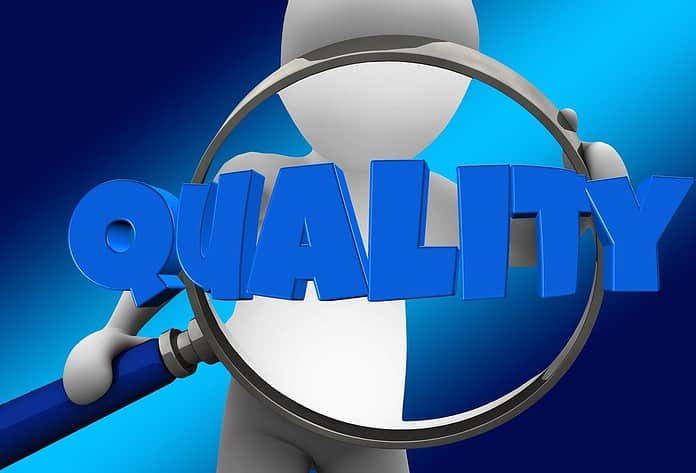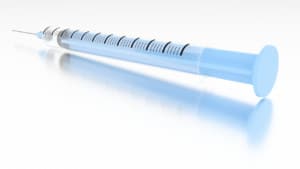Last Updated on October 2, 2024 by The Health Master
Drug Quality
In recent times, the Indian pharmaceutical industry has taken significant strides to strengthen its dedication to drug quality, patient safety, and regulatory compliance.
The Pharmexcil Bangalore Chapter congregated to discuss a Capacity Building Programme, shedding light on crucial aspects such as quality compliance, patient safety, and industry practices.
This article explores the key takeaways from the event and the industry’s commitment to fostering trust in delivering safe and effective pharmaceutical products.
Insights and Expectations
The Capacity Building Programme organized by Pharmexcil’s Bangalore Chapter delved into various dimensions of the pharmaceutical landscape.
Industry experts and regulatory authorities shared valuable insights into the expectations of state and central drugs control departments.
The emphasis was not only on compliance but also on quality management systems (QMS), risk assessment, and skill development. Additionally, the need for reliable excipient suppliers was underscored.
QMS: Ensuring Patient Safety
Karnataka drugs controller Bhagoji T Khanapure emphasized the symbiotic relationship between the pharma industry and regulators.
He pointed out that working closely with the industry allows regulators to address issues hindering drug quality.
The pharma industry, as a mirror of the regulator, plays a pivotal role in ensuring public confidence through transparency.
Raja Bhanu, executive director of Pharmexcil, highlighted the complexity of compliance in the industry.
However, he stressed that adherence to current Good Manufacturing Practices (cGMP) is crucial for patient safety, preventing defects, and maintaining specified drug quality standards in each batch.
Aspirations of the Pharma Industry
Harish K Jain, a COA member of Pharmexcil, outlined the industry’s aspirations as it aims to move up the value chain and target a revenue of $130 billion by 2030. He emphasized the need for innovation in a highly competitive global market.
Jain, who moderated a panel discussion on drug quality compliance and patient safety, stressed the importance of aligning manufacturing and quality processes to facilitate global regulatory compliance.
Regulatory Authority’s Role
Rajshekhar, DDC(I), CDSCO, Bengaluru, led discussions on the regulatory authority’s role.
He highlighted that Indian pharma has never lacked trust in the global market but underscored the need to ensure product compliance.
The panel discussed challenges, including the recent cough syrup incident, which prompted swift action from regulatory authorities.
Rajshekhar emphasized the need for testing liquid formulations at accredited labs and the importance of recognized labs in this process.
QA and Patient Safety
Dinesh Mehandale, AVP of Quality Assurance (QA) at Relicare Tech Services, stressed that every element of drug quality contributes to patient safety.
Vendor assessment and audits were identified as critical components, with Mehandale advocating for the rejection of vendors not adhering to quality standards.
Anuradha Nair, associate director at Biocon, highlighted the role of risk management in ensuring patient safety, beginning from molecule identification.
She emphasized the potential of technology adoption to streamline tasks and minimize errors.
Excipients and Regulatory Guidelines
Kaushik Desai, secretary general of IPEC India, drew attention to the critical role of excipients in medicines.
He emphasized the need for a separate regulatory guideline for excipients, treating them as drugs themselves.
Desai stressed the importance of thorough assessment and testing to ensure high quality and purity.
Adverse Drug Reactions (ADR)
Goutam Bhattacharya, CEO of LSSSDC, moderated discussions on addressing adverse drug reactions.
He proposed the need for an ADR emergency contact number, similar to police and ambulance services.
Bhattacharya also highlighted the necessity of a legal dedicated service for ADR issues.
Disclaimer: This article contains information derived from the source mentioned below. Our team utilized an AI language model to rewrite and present the news or article in a unique format.
Maharashtra FDA’s Crackdown: Strengthening Pharmaceutical Compliance
DCOIWA successfully organised workshop on Risk Based Inspection: Ahmedabad
USFDA Approval granted for Cyclophosphamide Capsules: Zydus
New Drug Permissions and Launches should be made public
CDSCO approval granted for Inhalation Aerosol: AstraZeneca
FDA Maharashtra to recruit 750 officials soon
USFDA issues Form 483 with 5 observations to Torrent
Pharmacy of the World: Addressing Challenges in Excipient Quality
17 Drugs Control Officers join at FDA Haryana












